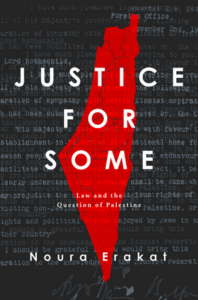Elections yesterday in Israel failed to produce the majority PM Benjamin Netanyahu was after, and will likely lead to a broad coalition government made up of zionist Yisrael Beiteinu and Likud parties together with the Kahol Lavan political alliance. The Joint List of Arab parties enjoyed record turnout among Arab voters in Israel and won 13 seats (even though parties were allowed to film in polling places, a tactic legalized specifically to dissuade Arab voters). An additional five million Palestinians were denied the right to vote.
Many of the details around the new coalition are still emerging. But rather than hitting refresh on google news for the latest details about the new government, let’s go back to a fantastic interview with Noura Erakat on Democracy Now! last week:
In the aftermath of the 1967 war, Israel declared 60% of the Jordan Valley as a closed military zone and off basis. They built three outposts, military outposts, in 1968 and, under a Labor government, built those into civilian settlements in the early 1970s. It was a Labor, Israeli Labor, minister, Yigal Allon, who declared that the Jordan Valley would be part of Israel’s defensible borders. It was Israel’s dove, Yitzhak Rabin, in 1995, who said that this would be part of Israel’s final borders. And it was under the Oslo peace process that 90% of the Jordan Valley came under full Israeli civil and military control.

What Netanyahu is doing now is basically taking this awful policy, this steady policy of settler-colonial removal of Palestinian and encroachment of Palestinian lands, to its logical end, which is to say, “Well, now it’s just ours.”
And it’s really disingenuous and dishonest to be angry with Netanyahu and his bold claims against international law and what is tantamount to a war crime, and not be angry with the fact that U.S. foreign policy has steadily created this fact on the ground, that the EU now, as it’s condemned Netanyahu and said that it won’t recognize these moves, still fails to apply sanctions in order to punish this policy, in order to deter it. Where there’s no condemnation of the fact — everybody wants to talk about the two-state solution, that’s been dead, but nobody’s paying attention to the fact that, since 1967, the Palestinian population in the Jordan Valley has been reduced from 320,000 in 1967 to 60,000 today. And most of those 60,000 are concentrated in Jericho, which is the Palestinian Bantustan in the Jordan Valley. So, this is unfortunate, but it’s also really disingenuous not to discuss it in the length and in the context of what has been steady Israeli policy and steady U.S. policy and international policy that has made it possible.
Erakat’s perspective is crucial because it gives us the context we need to understand Israeli apartheid and settler colonial removal as a result of decades of Israeli, US, and international policy. And none of these elements are likely to change dramatically because of an election. The whole interview with Erakat is fantastic and well worth a read/listen/view. Her book, Justice for Some: Law and the Question of Palestine, was released earlier this year by Stanford University Press.
